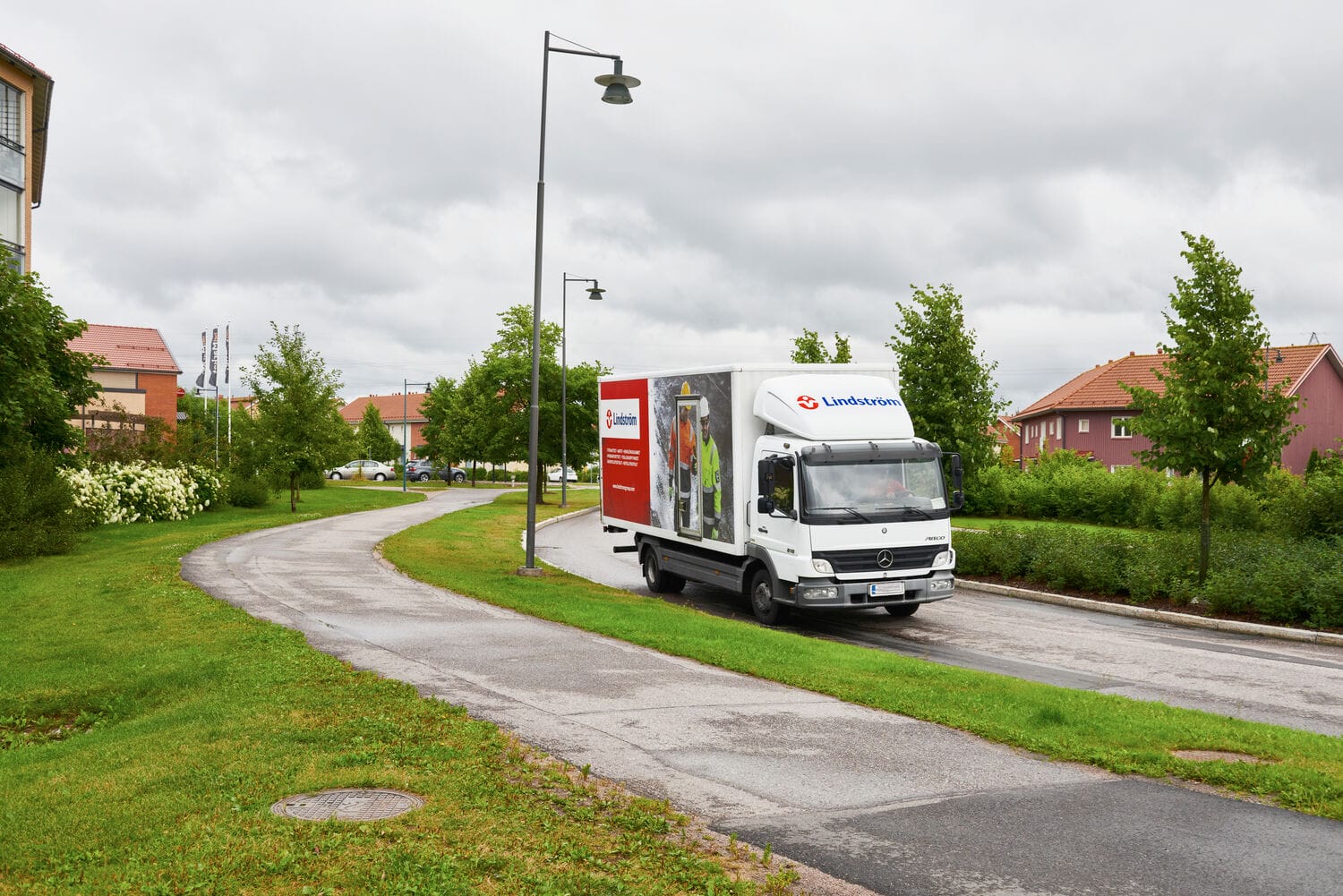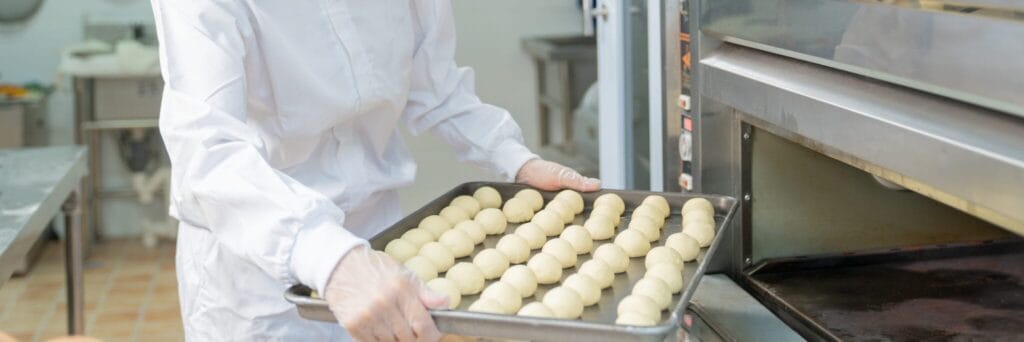
Lindstrom pulls of a success story in India
The original article is published in Business India, July 16-29, 2018 by Arbind Gupta.
Lindstrom India, the subsidiary of Finland’s 170-year old Lindstrom Group, has made big strides ever since it entered India in 2007. The company, which has been offering workwear rental services to over 1,000 establishments across pharmaceutical, food, retail, automobile services, electronics and healthcare sectors, has grown at a CAGR of over 35 per cent in these years. Currently, the only organised work wear rental services player in the country, Lindstrom India supplies freshly laundered and clean workwear to over 300,000 people every day across various industries.
In India, Lindstrom has got in circulation over 1.5 million workwear (globally 10 million), which it sources from five garment manufacturing companies, as also from its own manufacturing unit in Mumbai. The company also makes, on its own, almost 20 per cent of its workwear requirements. Most importantly, initially, the company, which was importing most of the fabric requirement (for garment manufacturing) from China and other South East Asian countries, is now sourcing almost 95 per cent of the requirement locally from its vendor network in India. Lindstrom India has also set up a dedicated Rr&D/design team, which works closely with its customers to meet their specific needs.
Headquartered in Mumbai, Lindstrom India, backed by 600 employees, has put up 11 business units (service centres) in many cities, such as Mumbai, Delhi NCR, Kolkata, Chennai, Bengaluru, Hyderabad, Pune, Vadodara, Panchkula, Tinsukia and Vishakhapatnam. These units have a combined capacity to process about 2.5 million garments per month. Besides, the company has recently set up one of the most modern cleanroom facilities for the pharma sector in Pune (capacity: about 400,000 garments in a month). this 50-crore entity is the first such facility in India to be set up by the €360-million Finnish group. In fact, outside Finland, this will be the group’s fourth cleanroom facility – apart from the two in China and one in Russia.
For the Finnish group, the Indian venture has emerged as the largest operation outside Finland, which continues to contribute about 55 per cent to its global revenue. A family- run group, though in the business for over a century and a half, Lindstrom decided to move outside Finland (as part of its global expansion plan) only 25 years ago and has operations in 24 countries in the EU and Asia. In Asia, it first ventured into China in 2006; thereafter, into India in 2007; and into South Korea 18 months ago. India, along with China, Russia and the UK, is the focussed markets for the group, which is looking to take its total revenue to €500 million by 2020, even as the Indian operation is looking to double its business during the same period.

“The Indian operation has shaped up quite well for us,” says Juha Laurio, 46, president & CEO, Lindstrom Group. “India has become one of the focussed markets for our global business and we are now all geared up to explore the opportunities it is offering. We have invested heavily in building up our capability in India and will continue to do so going forward”. Joining the group in 2006, Laurio, who has a Master of Science Degree in Technology and Mechanical Engineering from Helsinki University of Technology, has played a major role in turning this business into a truly global one by bringing countries like India and China (recently also South Korea) into its fold. He has extensive experience in international business, having held several positions at Perlos Group in Finland and in the US during 2000-05.
Group expansion
After his assuming charge, the group’s turnover has more than doubled to €358 million in 2017 from €156 million in 2006. Amidst investment-led expansion, the group has maintained a profitable journey, clocking a net profit of €18 million in 2017. From operating in 14 countries and employing 1,500 people globally, the group has now expanded to 24 countries employing 4,000 people. Founded by Carl August Lindstrom in 1848 in Helsinki, Finland, the group started its journey in a modest manner, with a small textile dye house. In the 1920s, the Lindstrom family sold their shares to the Roihas, who maintain owner-ship and control over the company today. Over the years, with the market changing its dynamics, the group decided to change its businesses and, today, it has grown into a global company that specialises in textile rental services. Additionally, it offers services for hygiene products, mats, hotel & restaurant textiles, personal protection equipment, and industrial wipers.
“The Indian operation has progressed remarkably well for the group,” says Anupam Chakrabarty, 45, managing director,

Lindstrom India. “In a short span of time, India has not just become one of the thrust markets; it is the largest market (for workwear) for the group outside Finland. For a country like India, where workwear rental services is a new concept, we have managed to pull off a great success story. And, we are all set to double our business in India, even as the industry is gradually realising the benefits of such services”. An engineering graduate from National Institute of Technology, Chakrabarty joined the Lindstrom group as manager, business unit, Mumbai, in 2008 and was made managing director, Indian operations, in September 2011. Before joining the company, he was business head, modern trade, IFB industries, a consumer durable company.
Under Chakrabarty’s leadership (since 2011), Lindstrom India has grown five-fold to become the second largest subsidiary for workwear business in the group after Finland. Chakrabarty has also driven Lindstrom to increase its presence from just three business units in 2011 to 11 units now, ensuring a PAN India presence. From a predominant presence in just two sectors – pharma and electronics (customers: 150), with less than 100 employees – the company has grown to cater to sectors like food, and has recently also ventured into healthcare, quick service restaurants and automobile services. It is looking to venture into retail and also evaluating sectors like metal, mining and petrochemicals for the future. Today, the company caters to most of the major players in the pharma and food industry.
Lindstrom India has significantly ramped up its capabilities in the last few years. From importing almost all its fabrics for garments, the company has now built up a strong vendor base in India and imports only 5 per cent of fabrics – that too only specialised/technical fabrics. Moreover, the company has got five large vendors, which make its 1.5 million plus garments (workwear) that are in circulation at present across over 1,000 customers. with the roll-out of its cleanroom facility in Pune, India has now become the fourth country for the group to have such a facility. Today, the Indian operation has emerged as one of the major centres for R&D and innovations for the group.
Major company base
In fact, this progression has impressed the group management so much that, last year, it inducted Chakrabarty to its global management team as senior vice-president, sales & markets. Besides, the group has also brought on to its board another Indian – Naresh Gupta (formerly of Ashok Leyland) –as of one of its independent members. In fact, one of the employees of Lindstrom India has also been elevated as head, finance, Asia.
“Certainly, India has emerged as a critical location for our entire group,” says Laurio, who has been instrumental in transforming this family-run business into a formidable force. “The way the Indian business has evolved in a short period with the help of its leadership and team, it has helped us immensely in pursuing our mandate of expanding our business globally. We as a group are trying to replicate this success to other locations as well”.
“When we first decided to enter India, we primarily had MNCs in mind,” adds Laurio. “But today, Indian corporates – both large and small – are our major customer base. In fact, Indian companies are contributing to a bulk of our business and this clearly shows how Indian market has evolved for our business”.
While the performance of the Indian operation has overwhelmed the global leadership in a big way, the industry in India has also responded quite positively to the services the company is offering. All these years, most of these companies in India have been depending on their own in-house capability for meeting the various requirements of workwear for their employees. But, now, with the emergence of Lindstrom, the entire 360-degree needs of an organisation are being taken care of, thereby freeing a good chunk of efforts and resources, which the organisation can use in its core business.
Under the given business model, on getting the mandate (the contract is usually for a minimum period of three years) from its customer, Lindstrom carries out a detailed analysis of its workwear requirements and thereafter undertakes designing and manufacturing of the garments, followed by its distribution, collection, maintenance stocking and finally disposal of the garments on completion of the life cycle. It collects the soiled garments from the site/shop floor and provides the workers with clean and well-laundered garments on a regular basis. As a service provider it not only offers all these services, but also invests heavily in the designing and manufacturing of these garments.
One-point solution
The company charges a certain fee as rental which varies from industry to industry, depending upon their requirements. In pharma, food processing and others, the primary requirement is hygiene and cleanliness, while, in the case of automobile and other such manufacturing activities, the main issue is safety. in pharma (for certain activities like production of vaccines & other drugs) and electronics (while making semi-conductors and micro processors), a certain type of workwear is needed, which should not only be free of all foreign particles but also be completely passive enough for not influencing/impacting the activities carried out by the employees wearing them.
This is where cleanroom facility comes into play. Here, the garments, after cleaning, are infused with the required characteristics to handle specific tasks. In a cleanroom, the workwear is handled in a regulated condition for ensuring specific characteristics. In other words, a clean room is a controlled environment that has a low level of pollutants such as dust, airborne microbes, aerosol particles and chemical vapours. Such facilities are normally also utilised as part of specialised industrial production or scientific research, including the manufacture of pharmaceutical items and micro-processors. All these years, Indian companies have been processing their workwear creating their own cleanrooms, but now with companies like Lindstrom offering such a facility, they are more than keen to outsource this activity as part of a larger package. Many companies which don’t have cleanrooms alternatively depend upon disposable gowns, even as they find it challenging to dispose of these gowns.
“We provide a holistic and quality solution to our customers who have shown a keen interest in our services,” says Chakrabarty. “By taking care of these non-core activities (for them), we help them focus on their core business. Besides, they need not have to invest heavily in buying these workwear and hence save significantly in terms of resources”. He believes that, with the growing awareness level, the Indian market is gradually becoming quite attractive for their business and more avenues are going to open up in future. Now, even government agencies are well-geared up to create awareness about hygiene and related issues, which certainly pave the way for a much better scenario, going forward.
“Lindstrom has made our life easy, as we can now concentrate on our core business activities,” says Bhupinder Singh, CEO, Vista Processed Foods, a part of the OSI Ggroup. “The company is good in understanding the textiles and garments suitable for specific industries, in order to enhance the safety of the workforce and at the same time ensuring high levels of hygiene”. Vista has been using Lindstrom’s service for the last 6-7 years now.
“Lindstrom is a one-point solution for ensuring hygiene of garments in the most professional way,” says Ramprasad, vice-president, operations, Biocon. Adds Arvind Babu, director, facilities management, Dr Reddy’s laboratories: “for us, Lindstrom is not just somebody who manages our uniform; we consider them as our partner in our journey to be compliant with the current as well as proposed good management practices.”
While customers are happy with these services, the suppliers and vendors are also becoming part of Lindstrom’s growth story. “We are immensely proud to be associated with Lindstrom,” declares Shankar T.K., CEO, Electrotek, one of the garment vendors of Lindstrom India. “This is our fifth year of association and, during this period, we have grown from a 10-machine factory to a 350-people strong organisation. Lindstrom has helped us give employment to these many people – 95 per cent of them, women. We are confident that we will grow with Lindstrom”. Modern cleanroom facility at Pune
Being a responsible company, Lindstrom Iindia has recently also joined hands with government agencies like FSSAI and the Union ministry for heavy industries, to create awareness about hygiene and safety in food and sectors like metal and mining. “In India, a lot is required to be done to improve hygiene standards,” pointed out Pawan Agarwal, CEO, FSSAI, in a recent industry and media roundtable organised by Lindstrom. “Few places have high standards of hygiene. And this is something that is not discussed as widely as it should be. This is the first time that an event has been organised by Lindstrom, which specially focusses on hygiene and safety”.
New initiatives

While addressing another industry and media roundtable organised by Lindstrom, Girish Shankar, secretary, Union ministry of heavy industries said: “I appreciate Lindstrom’s endeavour to bring the topic of workwear and workwear safety to the forefront. And, I hope that the management teams across industries will work towards bringing in due focus in this area.”
“I see our company really helping the ‘Make-in-India’ initiative of the government of India, as many of our customers, especially in the food and pharma sectors, are either exporting or manufacturing products, which would have been imported otherwise,” says Naresh Gupta, independent member of the board, Lindstrom Group. “Besides enabling them to focus on their key operations, and bring convenience, we help them meet key hygiene and safety requirements. We feel proud to be a good corporate citizen and also bring intangible values such as care of customers’ workers and the preservation of the environment”.

“For our customers, we want to be a reliable partner that supports their business, understands their needs and above all, always gives them added value,” affirms Anna-Kaisa Huttunen, senior vice-president, business concept development, Lindstrom Group. “The goal for everything we do is a satisfied customer and in this way keeping our customer relationships for the long term”.
With the company now having managed to establish itself in the Indian market evoking an impressive response among various stake-holders, it is now looking to commence its next growth phase. There are now plans to double the business by 2020. The company is planning to double the Pune cleanroom capacity and also set up one more cleanroom in south India in the next 12 months. By 2020, the company will also take the count of business units (service centres) to about 15, from the present 11 units.
Lindstrom India is planning to venture into newer areas too, including metal, mining and petrochemicals. It is also evaluating the possibility of getting into hygiene products, mats, hotel and restaurant textiles, personal protection equipment and industrial wipers, which are being carried out by the group in other parts of the world. Pursuing the group’s digital initiatives, the Indian unit is focussing on various digital solutions that will transform the experience of customers.
Recently, the group launched an eLindstrom service portal. This webbased service allows customers to better manage their own orders and track the workwear location between their own facilities and the laundry, which eventually also increases the transparency of its operation. Each of the company’s garments is equipped with an automatic remote tracking tag, which allows it to easily track the clothes’ use and their washwear cycles. Moreover, there are also moves to put up smart facilities at customers’ premises or in the vicinity of the workplace, where workers can pick up their work clothes before the start of the shift.
The company has been using remote identification for a long time in its laundries. The next step is to take advantage of the new generation remote tags at its customers’ premises, which will make their everyday lives easier.
With all these initiatives, Lindstrom is well poised to start its next growth phase in India, which is gradually evolving as a strong marketplace for such services. Though the concept of workwear rental services is new for India, the market has shaped up quite well in the last decade with rising awareness of hygiene and safety. The specialised and quality services of the company have gone a long way in creating the desired traction for such services in the market. With market dynamics evolving and the highly competitive marketplace forcing the industry to focus on core activities, divesting attention and resources from non-core activities, more and more companies will look for
outsourcing such services to specialized players like Lindstrom. Besides, associating with a global company like Lindstrom also helps its customer improve his brand value and image, which is increasingly becoming paramount for a company in today’s marketplace.



